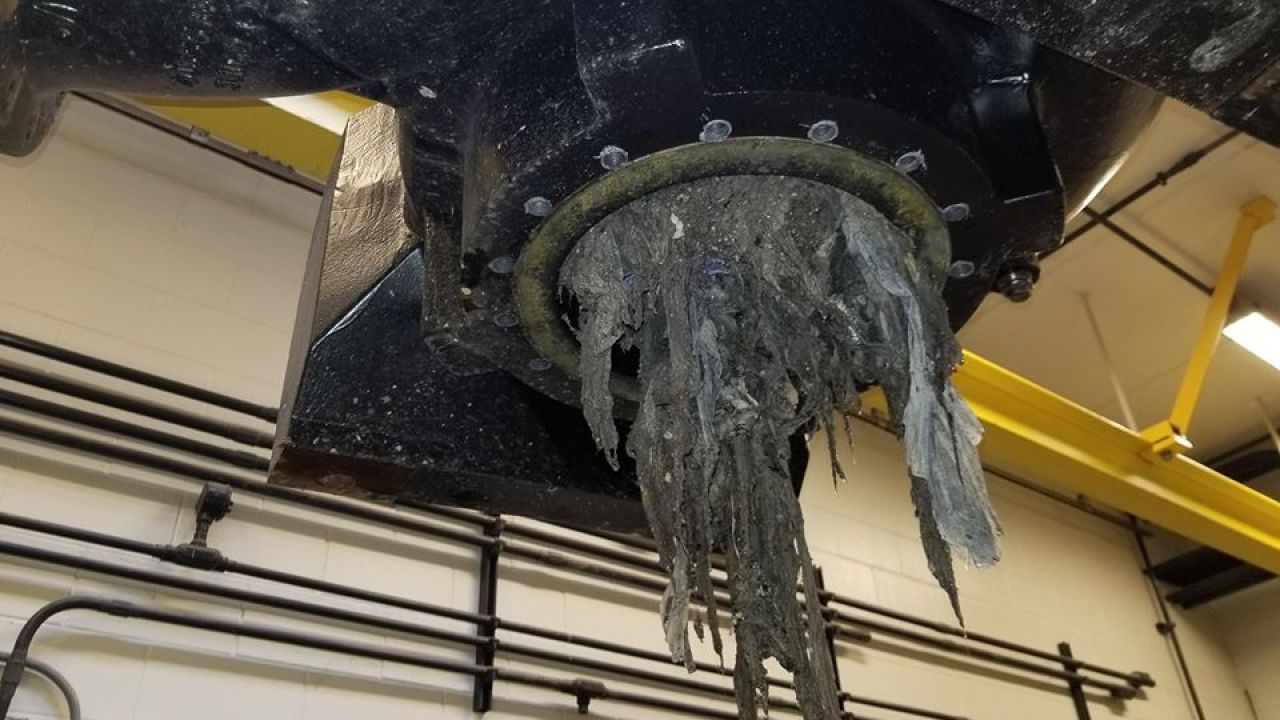No Wipes in the Pipes

What Not to Flush
Baby or any “Flushable Wipes.” YOUR “FLUSHABLE WIPES” ARE NOT ACTUALLY FLUSHABLE! Not only do they affect the public sewer pipes (see photo to right), they can affect home lateral pipes (the pipe that carries home wastewater to the public sewer pipe) and the home’s internal plumbing. The home lateral and internal plumbing are the responsibility of the home owner and can be costly to clear. Dispose of “flushable wipes” in your trash.
- Paper towels, napkins and facial tissues. Although they appear to be of the same material, they are not and, do not decompose in water like toilet paper does.
- Disposable and cloth diapers. They normally don’t fit anyway.
- Fibrous materials: Q-Tips, cotton balls, cotton pads, hair, rags, cigarette butts.
- Large quantities of cereals or grains. They can swell in water.
- Kitty litter.
- Gum.
- Medications. Treatment plants do not treat for synthetic compounds. Instead, place in a sealed container or, wrap in aluminum foil, and dispose of in your trash. Park City Police and Walgreens Pharmacy also accept medications. Click here for more on Endocrine Disrupting Compounds.
- Menstrual products. They are products intended to absorb water, not decompose in water.
- Condoms. Also do not decompose in water.
- Dental floss. Behaves like a fishing net in water, capturing and holding on to debris. Can wrap around pump motor parts (for homeowners who have wastewater ejector systems).
- Food. Yes, it’s biodegradable and, will eventually decompose. However, not before it clogs your drain.